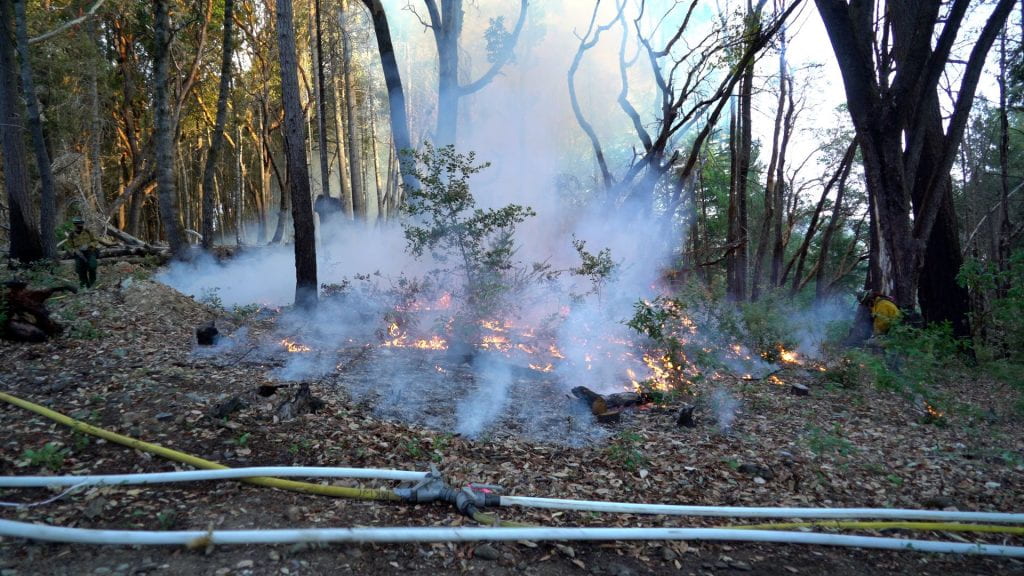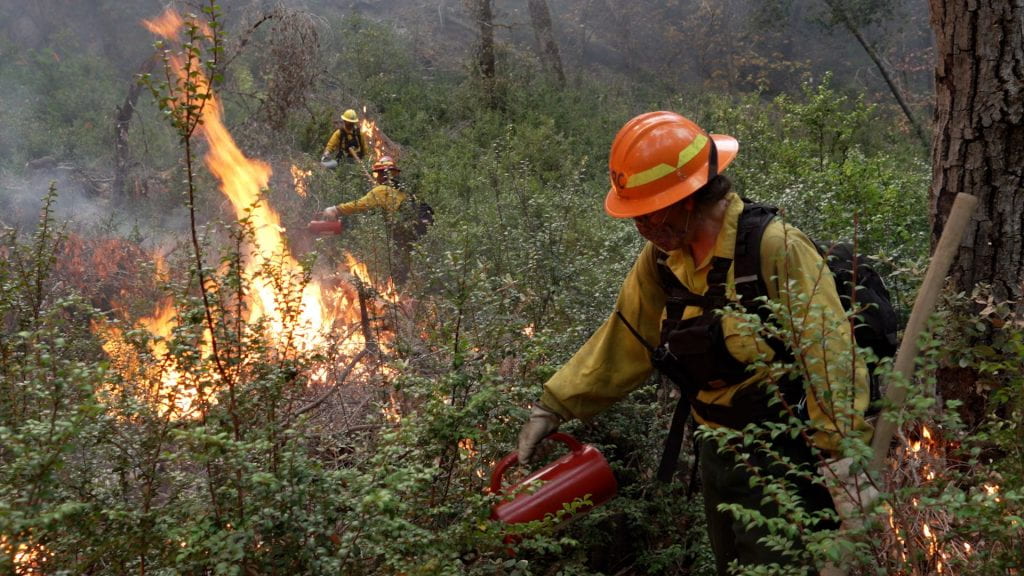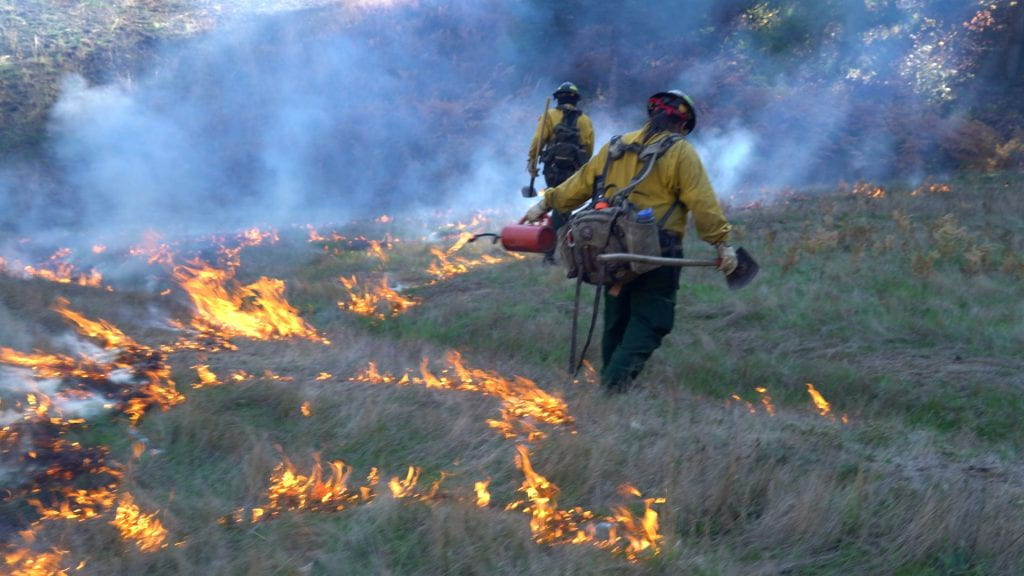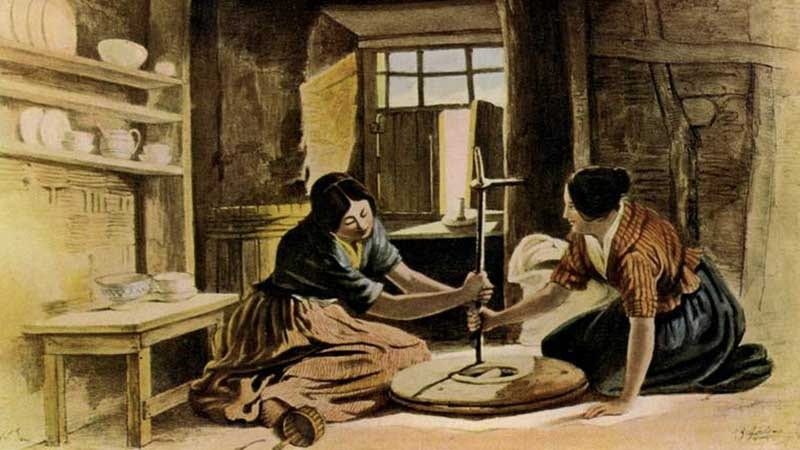News
Ghost Stories and Folklore of Mac Court and Pioneer Cemetery
The legends in this story from AroundtheO are drawn from the UO Randall V. Mills Archives of Northwest Folklore, a repository of fieldwork collections and research materials on folklife in Oregon, the Pacific Northwest, and beyond. Folklore and Public Culture faculty folklorists Martha Bayless, Daniel Wojcik and Dorothee Ostmeier say they exemplify patterns rooted deep in various cultures—and mean more to us than simply a good scare.
View the full story in AroundtheO: https://around.uoregon.edu/content/ghost-stories-and-folklore-mac-court-and-pioneer-cemetery
Alumni Feature – Hillary Tully
Hillary graduated in spring, 2018, with an M.A. in Folklore and after working for several years in Eugene, OR at Lane Arts Council, she is now the Executive Director at Arbutus Folk School in Olympia, WA. She says, “My folklore degree gave me the tools and qualifications to become the arts administrator, nonprofit manager, ethnographer, and culture worker I am today.”
Hillary was recently featured in the The Olympian.
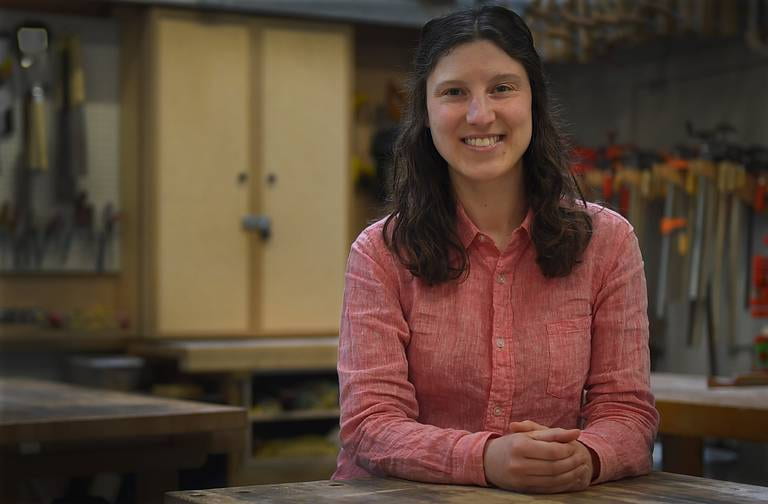
New Arbutus Folk School executive director Hillary Tully is eager for a post-COVID expansion. STEVE BLOOM SBLOOM@THEOLYMPIAN.COM
Arbutus Folk School director is working on expansion even as pandemic limits offerings
Alumni Feature – Bruno Seraphin
I earned an MA in Folklore from the University of Oregon in 2015 with my thesis “Stories We Live: On the Hoop with Nomads of the Northwest.” As of 2021 I am a PhD Candidate in Sociocultural Anthropology at Cornell University, doing a graduate minor in American Indian and Indigenous Studies. My PhD research focuses on the politics of wildland fire suppression and prescribed burning, through lenses of Indigenous sovereignty, environmental justice, critical security studies, and visual anthropology. My project is a partnership with the Karuk Tribe’s Department of Natural Resources (DNR).
At the U of O:
As a graduate student in the Folklore Program, I worked as a graduate employee for the Oregon Folklife Network (OFN) for three terms and served as a research fellow and project coordinator after receiving my MA. In these roles I helped coordinate and document the Traditional Arts Apprenticeship Program, among other projects. Also working with the U of O’s Museum and Natural and Cultural History, I co-produced a series of collaborative short documentaries with several of Oregon’s federally recognized Tribes. In these projects Tribal cultural committees selected the videos’ topics, interviewees, and filming locations, and gave feedback during each stage of the filmmaking process. Video themes included climate justice, histories of dispossession, termination of Tribal recognition by the federal government, subsequent activism for restoration, and contemporary efforts of cultural and language revitalization.
For my master’s thesis research (completed in 2015), I visited, traveled with, and interviewed nomadic non-Indigenous “rewilders” in Oregon and California, people living on “The Hoop,” a movement sometimes called “wildtending.” I was interested in the use of narratives in the formation of wildtending, a dispersed network of non-Indigenous aspiring nomads who appropriate Indigenous first foods knowledge in efforts to approximate a “seasonal round” lifeway. The research, which has resulted in three peer reviewed publications, explores the intersections of race, nature, futurity, and the politics of belonging, and highlights the ways that counter-cultural environmentalist projects navigate their participation in settler colonial power structures as they strive to advance liberatory futures.
Current Research:
My present PhD research is a partnership with the Karuk Tribe that focuses on, first, the ongoing colonial legacies of California’s firefighting apparatus and the militarization of firefighting, second, historical and contemporary anti-Indigenous and far-right organizing in the region and the ways that these movements and sentiments cohere around crisis narratives, and third, the ways that the ongoing resurgence of Karuk cultural fire use is a site of struggle to achieve climate justice and dismantle settler colonialism.
Of the six largest wildfires in California’s history, five were burning in September 2020. In 2018, California spent nearly a billion dollars fighting wildfire, and by 2050, destruction from fire is expected to double. During wildfires, the California Department of Forestry and Fire Protection (CALFIRE), the Forest Service, and other government agencies exercise extraordinary authority under the sign of “crisis.” Karuk people sometimes equate this intermittent exercise of environmental authority with “martial law.” Indeed, some Karuk people claim that the crisis-containment model of fire suppression poses as great a threat as climate change and consequent destructive wildfires, because it bypasses Tribal jurisdiction, infringes upon Karuk sovereignty, and criminalizes Karuk cultural relationships with fire.
Concurrently, Karuk people are using time-tested practices of prescribed burning to protect lives and lands within their ancestral territory and strengthen sovereignty and community wellbeing. The Karuk Department of Natural Resources (DNR) critiques and works to dismantle the settler state’s paradigm of “fire suppression.” For over a century, fire suppression policies have criminalized Karuk ceremonial and stewardship burning practices and led to destructive wildfires as forest fuels accumulate. As the region warms, Karuk fire practitioners assert that prescribed burning is a climate justice imperative.
I currently live in Orleans, California, Karuk territory, carrying out this research from October 2020 through the end of 2021. I am doing participant observation and semi-structured interviews with Karuk DNR staff, Forest Service and CALFIRE employees, wildfire-affected communities, firefighters, and other diverse regional residents. Like all outsider researchers who work with Karuk people, I have been expected to learn and adhere to the Karuk DNR’s “Practicing Píkyav” protocols, and my efforts are subject to internal review administered by the Karuk Resource Advisory Board (KRAB) and Karuk Tribal Council. I have assembled a local supervisory committee composed of Karuk DNR staff, Karuk community members, and allied researchers to consult on research methods and lines of inquiry.
I bring my experience as a filmmaker to the project. In 2018 and 2019 I co-produced three videos with the Karuk DNR, communicating the ways that Karuk knowledge of fire ecology meets the challenges of climate breakdown in northern California. These are: “pananu’thívthaaneen xúus nu’êethtiheesh: We’re Caring For Our World” (2019), “Fire Belongs Here” (2019), and “Revitalizing Our Relationship with Fire” (2018). Several other videos are in progress.
My project is funded by a Wenner-Gren Dissertation Research Grant. Preliminary research was supported by Cornell’s Department of Anthropology, American Indian and Indigenous Studies Program, American Studies Program, and Engaged Cornell.
Originally from Massachusetts, I am an award-winning filmmaker with a BFA in Film and Television from New York University. My scholarship has been published in The Trumpeter, Western Folklore, and The Routledge Handbook of Ecocultural Identity.
Oregon Folklife Network Awarded $35,000 by the National Endowment for the Arts
The Museum of Natural and Cultural History’s Oregon Folklife Network (OFN) has received a $35,000 grant from the National Endowment for the Arts. Announced as part of the endowment’s $27.3 million funding package for fiscal year 2020, the Oregon grant will support a folklife survey focused on the state’s southwestern coastal region.
With support from the grant, OFN will identify culture keepers in the coastal counties of Coos and Curry and among the Confederated Tribes of Coos, Lower Umpqua, and Siuslaw Indians and the Coquille Tribe of Indians. The survey aims to document folk and traditional arts practiced in the region’s many heritage groups, as well as examples of the area’s occupational folklife, foodways, and other traditions.
The regional survey is part of an ongoing statewide survey that has so far recognized over 400 folk and traditional artists among the state’s federally recognized Tribes and across 33 of its counties. Following survey documentation, OFN refers tradition bearers and folk artists for programs in parks, arts organizations, libraries, and festivals throughout the state and preserves the documentation in its archives.
“OFN is thrilled to have another year of NEA support for our documentation of Oregon’s living cultural heritage,” said OFN’s Riki Saltzman.
“The National Endowment for the Arts is proud to support grants throughout the entire country that connect people through shared experiences and artistic expression,” said NEA chair Mary Anne Carter. “These projects provide access to the arts for people of all abilities and backgrounds in both urban centers and rural communities.”
Oregon Folklife Network encourages recommendations of folk and traditional artists to include in the survey. Recommendations can be made by phone at 541-346-3820 or emailed to Saltzman at riki@uoregon.edu or Emily West at eafanado@uoregon.edu.
Oregon Folklife Network is the state’s designated Folk and Traditional Arts Program and comprises a network of partners working to document, support, preserve, and celebrate the diversity of Oregon’s living cultural heritage.
For more information on this National Endowment for the Arts grant announcement, visit arts.gov/news.
Martha Bayless, Folklore and Public Culture Director, Featured in “Around the O”
UO English professor, and Folklore and Public Culture Program Director, Martha Bayless is featured in a new story in “AroundtheO”. Click the link below to read the article.
UO professor is making history, and meals, in the kitchen
Prof. Bayless points to “humanity’s historical relationship with cooking as an inspiration for people facing the chore of making 28 meals per week at home, with restaurants and takeout limited during the coronavirus outbreak. Cooking used to be a more social endeavor than it is today, she said, which helped reduce the kind of fatigue and frustration she’s seen many people experience through the heightened volume of pandemic cooking at home.”
